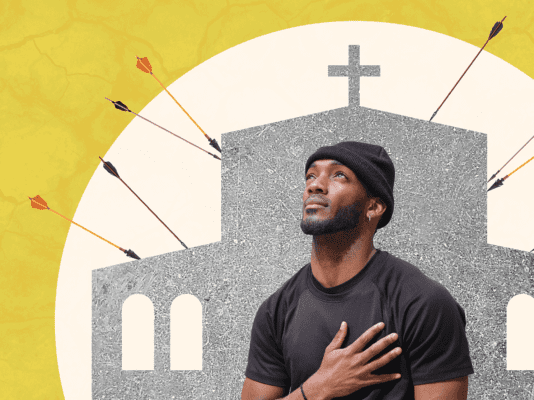There is a stigma that attaches to all things counseling. I experience it as a counselor. The second question people ask when you meet someone new, after “What is your name?” is “What do you do?” Having to answer, “I’m a pastor of counseling,” is the double social kiss of death.
The conversation either immediately accelerates into a personal subject that carries more weight than this fledgling social relationship should bear, or there is the awkward silence as that person wonders, “Does he have telepathic powers that can read my thoughts and knows my secrets? I’d better be careful what I say.”
Whatever awkwardness exists for a counselor can be greater for a counselee. I don’t think this is what “should be,” of course. I’m merely describing what I frequently hear reported to me.
The role of language
One of the culprits is language. Counseling is about as awkward to talk about as sex is, and it produces a similar amount of inappropriate slang. How many slang words do you know for counselor, psychological diagnoses, the therapeutic process, psychotropic medications, or a person who struggles emotionally? The common vernacular about such matters can often be on par with a middle school locker room.
Then you take the common-versus-clinical struggle of counseling language, and matters get more complicated. Consider the breadth of meaning that can be contained within the simple sentence, “I’m depressed.” That’s what many say after a bad math test, the end of a romantic relationship, the death of a parent, prolonged isolation, and when hung over from alcohol (a depressant).
Then, there is clinical depression, which has some relation to these experiences, but may or may not be present in the down mood associated with the list of experiences above.
The problem is a vicious catch-22. If counseling is going to be effective, then it must use language that people can understand and readily use. However, if clinical depression (or some other clinical phrase) is going to mean something more than “I’m down,” then counseling needs a language it can define and protect from being confused by common usage. We can’t have both.
C.S. Lewis describes a similar struggle in the development of the word “gentleman.” In his example we see how the “communizing” of language often robs words of their useful meaning.
The word gentlemen originally meant something recognizable; one who had a coat of arms and some landed property. When you called someone ‘a gentleman’ you were not paying them a compliment, but merely stating a fact (p. xiii) . . . A gentleman, once it has been spiritualized and refined out of its old coarse, objective sense, means hardly more than a man whom the speaker likes. As a result gentleman is now a useless word . . . Now if once we allow people to start spiritualizing and refining, as they might say ‘deepening’, the sense of the word Christian, it too will speedily become a useless word (Mere Christianity, C.S. Lewis, p. xiv).
However, in the case of depression and many other common counseling words, we are left wondering who “owned” the word first and who should “own” it now? It has to be “shared,” but when have people ever been good at sharing?
From language to stigma
The problem with shared language is that it both (a) gives people the impression they understand something they may not and (b) convinces people they are saying something helpful when they may or may not be. Consider this simple dialogue between two friends.
Person A: “I think I’m depressed. Have you ever been depressed?”
Person B: “Yes, I’ve been depressed several times.”
Person A: “What did you do to move past it?”
What are the odds that these two people are discussing the same experience? How likely is it that what was helpful for Person B will be equally helpful for Person A? How likely is it that these two people are considering the difference between the common experiences of being depressed? How many situational and personal variables will be weighed in this conversation as advice is given? What happens when the most common answers to these questions reveal an uninformed conversation?
People get hurt. People give and/or receive bad or ineffective advice. People become insecure about the discussion of depression (on both sides of the conversation). A stigma emerges as this subject becomes a source of more pain rather than relief. A stigma often produces humor to cover the awkwardness and clichés to move past the complexity. Silence seems like the best alternative, and it builds an insulation around the pain; ironically, this keeps it fresh.
Ultimately, the helper, helpee, and helping process begin to take on a distorted significance—either marginalized or glorified, depending on the level of hope or cynicism of a given individual.
From stigma to hope
It is highly unlikely that we are going to train an entire culture, or even an entire church, to know the difference between the counseling-versus-clinical usages of terms like depression. It’s even less likely that common conversation will be marked by intentionality and precision each time a word like depression is used.
Should pastors seek to nuance the common-versus-clinical distinction every time they speak of anxiety, depression, someone being compulsive, or hyperactive? No. That would probably add to the stigma as people feel compelled to be that precise in their day-to-day conversations. Should churches leave this issue to the professionals and avoid such subjects? No. Again, that only adds to the stigma as people would feel like these struggles made them “different” in a way that was socially “off limits” if they admitted it. Therefore, people would have to be “that bad” before they would talk to anyone (friend or professional).
Here are a few suggestions that I believe can help remove the stigma:
- Don’t make counseling jokes in preaching and teaching. I love a good counselor joke, and I hear a lot of them, but at this stage in the Christian discourse on mental illness, I believe humor reinforces stigma more than it edifies or alleviates tension.
- Offer discipleship classes on basic emotions like depression, anxiety, anger, and grief which include clinically accurate descriptions of these struggles and their more severe expressions of bipolar, OCD, control, and PTSD. More of these resources need to be created. We won’t agree with them all, and we’ll have to be okay with that.
- Downplay the disease model debate. For most people, it is not essential that they have a position on this issue before they seek help. Scripture presents sin as a condition and as a choice. Scripture presents suffering as the environment in which we live (bodies and social networks affected by sin) and gives us hope and a voice in the midst of suffering.
- Don’t assume that taking psychotropic medication means someone is buying into the disease model. Medication can both provide relief from symptoms and treat underlying causes; it’s not either/or. Medication does not prevent spiritual maturity.
- Post good Christian testimonies and resources of counseling-related struggles in our social media channels. This is where many people begin their exploration of how to understand their struggles and how conversation will be received.
- Encourage testimonies about counseling-related struggles in small groups and larger gatherings, but the more public the forum, the more informed the testimony needs to be about the common-versus-clinical language in their story.
- In public testimonies we need to be more nuanced about anecdotal (what worked for me) versus prescriptive (general recommendations) regarding emotional struggles. Testimonies are usually better for giving hope and an example of this being a safe conversation than drawing a correlation, “My experience of depression is like your experience of depression, so what worked for me will work for you.”
- Be authentic about our own seasons of emotional difficulty in our preaching and teaching.
- Quit using air quotes when we refer to diagnoses. This is demeaning and shuts down conversation.
- Most importantly, every pastor should build a friendship with several people who clearly struggle with clinical depression, childhood sexual abuse, chronic pain, unwanted same-sex attraction, and similar struggles (we already know them, if we have courage and authenticity to ask). There is nothing like friendship to help us find language that is accurate, honoring, and inviting.
This article originally appeared here.










